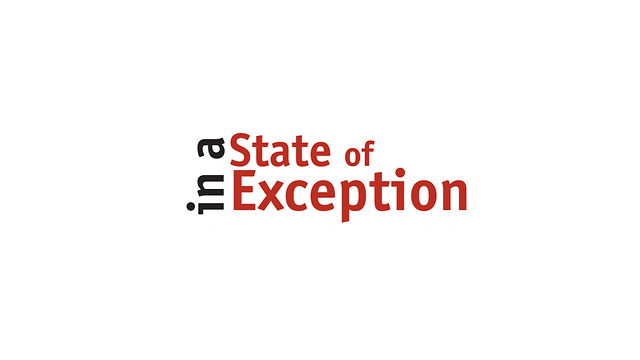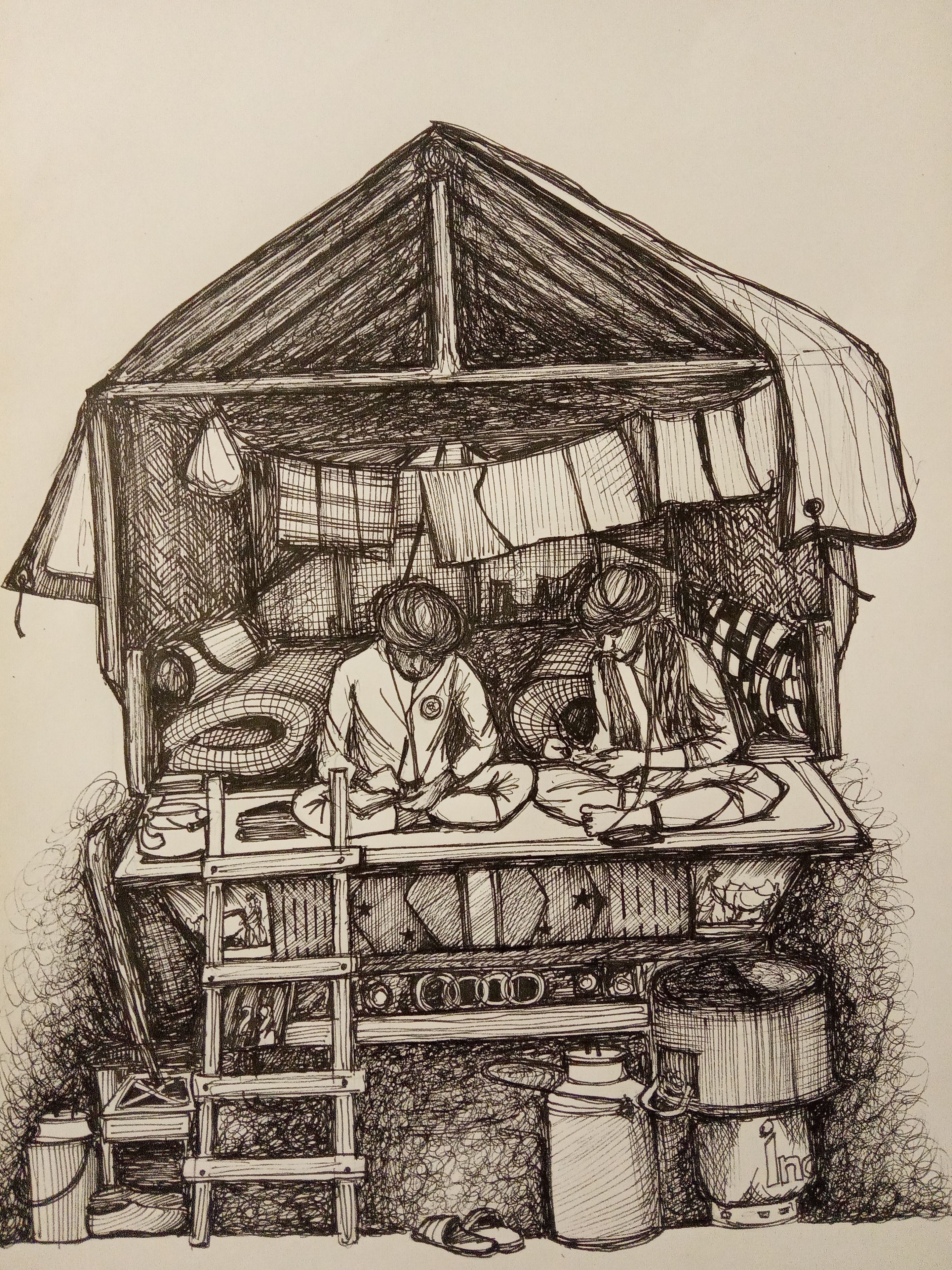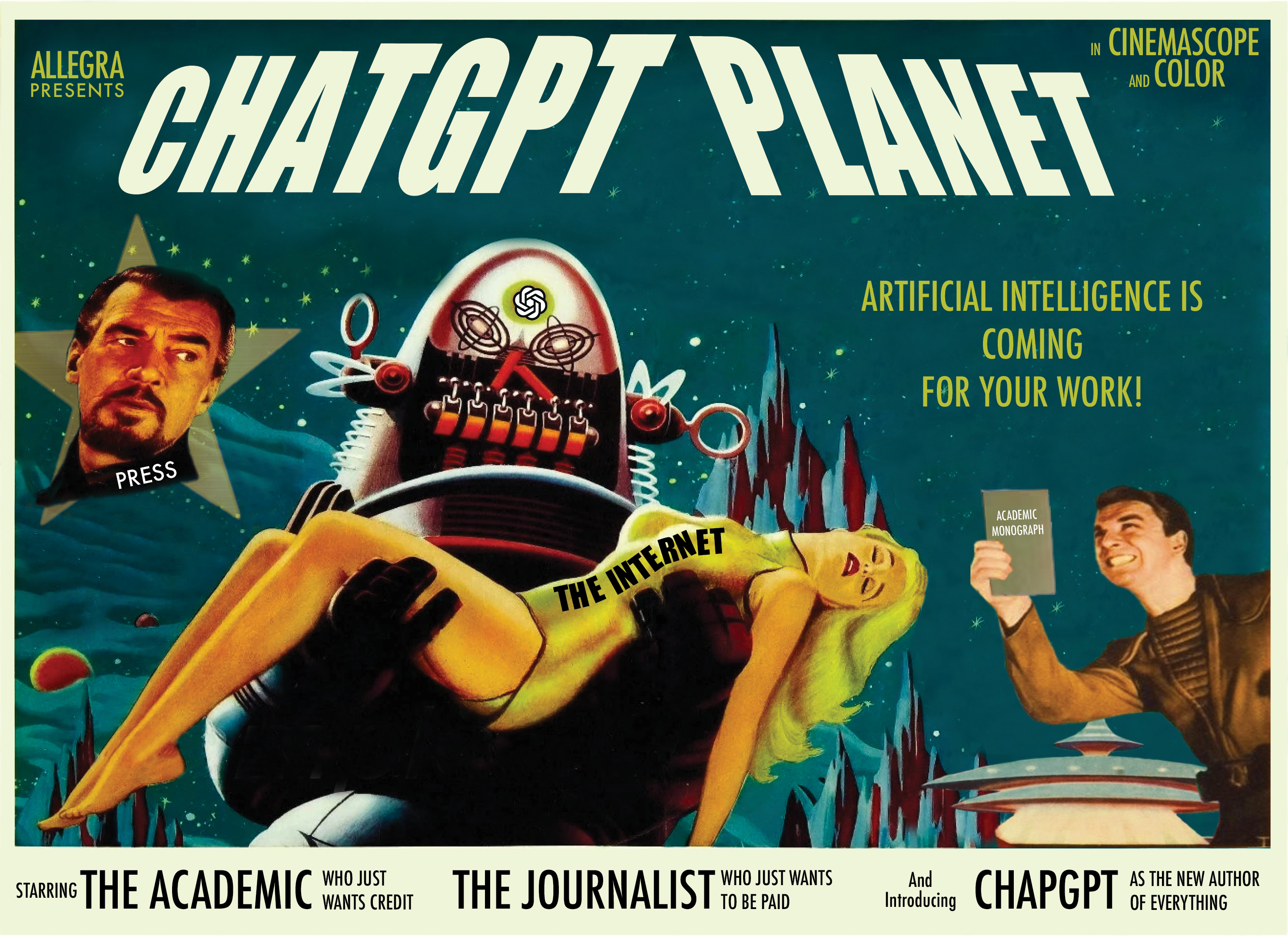Today we continue our thread ‘Allie’s Jewels on University Crises’ by a post by Dimitris Dalakoglou, originally published in October 2013. Written as a reaction to ongoing intense commotion at the time – University protests swept across the UK over worker benefits and student fees with the police resorting to heavy-handed methods to evict the occupiers, as well as a rejection of education privatisation more broadly – the points that the post raises are, if possible, even more compelling now. As Dalakoglou importantly points out: just why are we seeing this incessant obsession to ‘grade’ academics all the time, and what are the consequences of these practices on the content of scholarly work as well as academic communities more generally? This text was first published on the website of the Association of Social Anthropology of the UK and the Commonwealth and we are grateful for this opportunity to republish it with Allegra.
UNIVERSITIES IN A STATE OF EXCEPTION
Until recently the mainstream idea was that higher education (HE) has two major purposes: to create knowledge, following certain methods, and to teach and disseminate this knowledge. I do not deny the complex politics of these processes. Nor do I neglect the exclusion of several social categories from universities and the consequent (re)production of hierarchies through HE that Bourdieu (1988), among others, has analysed. However, the increase (in the UK and globally) of the percentage of the population which enters universities arguably constitutes an index of social advancement. Probably in an ideal world we should had free access to universities for everyone who wanted to study in the tertiary level.
But of course in a world of mass starvation, war and exploitation, demands linked with education are too utopian. Nevertheless, the question today is not so much quantitative but qualitative: namely even if we achieve in a magical way access to HE for every person who wants it on the planet, does university works towards resolving fundamentally any of these global problems or is it mostly a useful tool of the economic and political establishment? Moreover, is this so-called restructuring of semi-publicly semi-funded HE in Britain (and elsewhere) a systematic attempt to further this model that wants universities to be an even more integral part of the system of economic and political sovereignty? Do universities and academia after all deserve to be defended?
The Academia of Control
Let’s start with the notion of extra-academic impact and its implications since it encompasses a lot of the ideas behind the restructuring of HE in Britain. This so called non-academic impact now is one of the major parameters taken into account for the assessment of academic research. Usually for university-based social sciences and humanities non-academic impact is a potentiality that comes together with publishing and publicizing the outcomes of research. Whether we intend it or not, if an organisation, a formal institution, a social movement etc. finds our research useful for their purposes, they may be directly or indirectly affected by this published material. Another way that social sciences have a non-academic impact is through long-term changes in perceptions and the understanding of the social world, which then become public and collective knowledge with effect on formations such as political dynamics, human relations and personalities. However, there is an enormous difference between this long-term kind of effect and the new strategy that desires every academic to design research aiming to a clear and immediate utility for areas such as business and policy-making.
The problem is even more complex as the assessment according to this kind of non-academic impact does not apply only to newly designed research, but it extends into the assessment of existing one.
The logic of the current emphasis on that so-called non-academic impact departs from two main ideas: (a.) that the non-academic impact of academic social research is not the “right” one and (b.) that academia as a separate sphere of social activity cannot be organised by its own (whether good or bad) logic, but rather, it needs to be colonized completely by logics coming from areas with very different ethics and culture, such as the neoliberal capitalist market. Apropos, the policy makers who advocate for such colonisation stole these aforementioned critiques of academia from the radical criticisms, which suggest that great parts of academia are alienated from the society and its interests, while the internal logic of the academic world is admittedly far from perfect. However, nowadays the elites use this discourse in order to normalise their further hi-jacking of academia which hi-jacking in fact is the original source of these problems.
How does this link with the whole impact narrative? This new emphasis on non-academic impact transforms academic social research from a long-lasting and complex process into an end-product-oriented activity. This end-product will be assessed according to the width and quantity of its benefits (=profitability). Moreover, this product should have explicit beneficiaries (=consumers, clients) and explicit, quantifiable and immediate return. The character and the ontology of this end-product is instructed by its potential demand. The logic goes that if there is no demand, it should either not be produced, or it should have to be adjusted to fit the potential demand (=marketing). Eventually, the purpose is to force academia as a whole to translate itself entirely into the language of the capitalist market2.
This translation of academic social science research in the language of immediate reciprocity and maximization of profit implies that most social scientists will have to self-discipline and exclude various areas of study if they want to survive. So in fact it undermines academic freedom. This is not to say that this process of marketisation (Shore & Selwyn 1998) and end-product oriented research and is not already going on. The Gaddafi-LSE example or the collaboration of anthropologists with US army, are indicative of this kind of ethos. However, it is different facilitating willing scholars to be useful to the various versions of establishment and forcing every academic research to be designed having amongst its main aims a non-academic impact of such kind.
The problem, nevertheless, is not only the form of assessment but the logic of non-stop assessments and classification as such. Contemporary society has been characterised as a control society (Deleuze 1990), this is the next step following the Foucaultian disciplinary society. Certain anthropologists described this process as the emergence of audit culture (see Strathern 2000) and they studied it precisely in reference to the British HE (Shore & Wright 1999). A main part of this current regime of control is the culture of constant and intensive assessments that comes together with the colonisation of academia (and the rest of the world) by the principles of the corporate world.
These constant assessments are designed in a way that usually it is not possible for those assessed to attain the given targets.
Furthermore, new assessment processes are being introduced all the time, so that a good score in so many scales is almost impossible. In this way structural hierarchies and subordination are being legitimated and normalised within the various organisations (universities included). This is a measure for exercising power since the assessed one is all the time requested to try harder, to produce more and faster to do something towards a new desired direction, to change something and intensify their work in order to score higher for the sake of it.
Simultaneously, these endless -frequently aimless- assessments require our participation either as assessed or assessors so we become ourselves agents of our own systematic and systemic subordination. In our case this domination of audit culture does not only create an apparatus controlling the content of academic research, teaching and writing, but even worse via this culture of assessment and classification, we are forced to compare ourselves and compete with our colleagues, other disciplines, other universities or other parts of the society. So when we all are too busy reproducing imagined categories and separations with the rest of the controlled, our power to react against the sovereign of control is weakened significantly.
The State of Exception
But why do the political and economic sovereign powers want to go one step forward in controlling even more of academia and the social sciences? Aren’t the scholars who are eager to collaborate with the elites enough? Moreover, we live in a liberal democracy where the tolerance of institutionalised criticism provides the best alibi for some of the most reactionary types of governance.
Arguably, political and economic sovereignty is discomforted by the social sciences and with society at large. Most probably for the majority of politicians in contemporary liberal democracies, society is a necessary evil. The political establishment needs the society (=voters, tax payers) to legitimate and finance their power, but otherwise society is too complex and thus state-directed social engineering never works.
Social scientists will have either to help (that is have an impact for) the elites or keep quiet, because producing knowledge about society not only reminds state powers that society exists, but it also helps to make more and more members of the society aware of the conditions of their everyday life. So the less and less people accept — e.g. to work for too little, go to wars and kill each other or accept inequalities and obey to the rest of the principles– the easier the work of the authorities.
Margaret Thatcher, being the least diplomatic of recent prime ministers in this country, stated this discomfort explicitly when she said that there is no such a thing as society. Her New Labour and Tory political offspring have followed in these steps, seeking to dismantle any notion of society informed by social sciences. Today the “big society” is one of those anti-social-science slogans about society, a Conservative Party’s pre-electoral slogan that was cited several times in the recent AHRC strategic plan. At the same time, the big capitalist enterprises that comprise economic sovereignty find equally annoying social sciences, which blur the conception of the two main categories of human beings that corporate world recognizes: working people (producers of wealth) and consumers of products.
Systems of sovereignty deal with their problems in various ways, but one of the most effective ones is via declaring a state of emergency. We recently saw such situations in Egypt, Tunisia and Syria, while the British government threatened similar measures after August 2011 riots. According to Schmitt, the power of sovereignty is based precisely on its capacity to declare states of emergency (Agamben 2005). These states of emergency are periods of exception from the usual order of things. In the name of emergency some of the most violent and reactionary policies can be enforced.
So in the name of the current capitalist crisis the authorities declare a state of emergency, a crisis, in HE. We were told that in order to rescue academia from the monster of crisis we should allow the elites to shape a HE exactly as they wanted it, taming and domesticating this research that has emerged during the last few decade and it is critical and non-collaborative with the elites or just indifferent to the various projects of the people in power.
In the name of the crisis the question is posed again: “What is the utility of contemporary social sciences, arts and humanities?” or to translate their question: “Why are more and more social sciences, arts and humanity scholars less and less collaborative with the elites the last few decades?” Such a question would not arise in our case if, for example, anthropology in Britain still was a subject linked with the colonial administration of the empire, like it was in the past.
Under these circumstances and within the context of this new scale of assessment (impact) many of us are left to believe that anthropology is not important enough because as it is, it cannot score very well in reference to impact to business and policy-makers.This is very true, because most of anthropological research thankfully has little contribution to the unjust world of exploitation that sovereignty shapes today.
However, if there is something that the social sciences -including social anthropology- can be proud of nowadays it is their links and their impact to several social movements that fought and fight repression causing problems to various authorities and making the world a better place: From Franz Boas’ anti-racism and the contribution of feminist scholars to anti-sexism to the critique to global capitalism, (neo-)colonialism or other nexuses of power that so many of our colleagues have managed so exceptionally.
The increase of people who have access to HE-learning also has helped to disseminate this kind of knowledge to many thousands of people, who approach the world through the eyes of the proverbial Other, including the Other to the power. This is a perspective that seems to annoy the various agents of sovereignty the most.
It’s Not Them, It’s Us
However, acknowledging the achievements of our discipline does not mean that things in the universities were rosy before the implementation of research impact and before the outbreak of the so-called crisis of higher education. On the contrary the purpose is not to return to the pre-crisis situation of academia, but to see this crisis as an opportunity for a radical change of the universities towards a new HE that will not allow for parts of its body to collaborate with the elites.
We get annoyed with centres for the study of democracy financed by dictators, but we do relatively little regarding the growing links between universities and e.g. NATO, MoD, the Police, MI5, big corporations or government ministers. But this is not exactly a hijacking of academia by the sovereignty and its apparatuses. We are dealing with a process that often takes place from within.
The Gaddafi-LSE phenomenon did not emerge because of the bosses or the professors of the particular university. It was instead a version of a fairly typical phenomenon which found itself caught out. It is indicative of a wider and long-lasting trend which pushes universities (or even disciplines) to get more and more flexible morally in the name of their “utility” and in order to fulfil the various criteria that have been set within the diverse audit procedures.
But there is a further cost, at the same time that universities are developing these links with sovereignty, we are losing our links with the collective interests of the society, of the subordinated, the repressed and the exploited. Or even worse we become long-sighted: we get very excited about the Arab Spring, the 2008 revolt in Athens or the 2005 uprising in Paris, but we did not align ourselves effectively to so many struggles taking place next to us. Not even with the on-campus movements like the 2010-2011 anti-cut and anti-fee movement, which stormed our universities but had students as its main agents rather than academic teachers.
Our relatively comfortable, middle class salaries and lifestyles, our next book project, our next PhD student, our new course handbook, our impact report, our next task within the university administration and tomorrow’s lecture makes us almost indifferent to what is going on around the society.
Without underestimating at all the dramatic intensification of our working conditions and the fact that most academics (especially junior ones) are forced to work far more than 8 hours per day, it is also fair to say that the majority of academics arguably managed to lock ourselves into academic bubbles and wear our “I am an academic” hats. We often minded our own business, while crisis-capitalist governance was attacking gradually one after the other sectors of society in Britain or elsewhere.
To mention just a few of the strikes of this crisis-capitalism: back in the 1970s and 80s it was industrial workers in the West who suffered alongside entire continents in the global South. This was followed by the structural adjustment of postsocialist countries in the 1990s, and then striking the world via the recession in the US and now the euro-zone. Soon this new type of governance came home to roost amongst vulnerable people on benefits in the UK, to continue with the universal health care provision and public-sector pensions and HE, while the money coming from the heavy taxation of our labour is used for wars, for killing people in places where natural resources for global capitalism are located.
The question is what academics and social scientists did, as political subjects, as workers , as professional associations or just as fellow human beings when all these things were happening around us? The majority did very little, besides researching such phenomena, writing about them and possibly signing petitions, demanding aimlessly for better policies or for a better exercise of power, while it is apparent that these can be only the foundational sources of our problems.
And what about dealing with the versions of this new neoliberal governance taking place very near us? What did academics and anthropologists do when the expansion of student population took place in terms of marketisation and not in terms of socialisation of learning? What did they do when people sharing the corporate world’s principles undertook the management of our universities?
What did they do when the university education was transformed gradually from a teaching/learning centred process into a degree-centred training of future employees? What did they do when colleagues in our or other universities were offered precarious work conditions or lost their jobs? What did they do when our students learning and degrees were devalued and graduates were told that they have to go to work for free as interns in the name of “work experience”? What did we do when entire university departments or sections were shut down because they did not make it in that new assessment or after that new restructuring?
Some academics perhaps got scared from the blackmailing and were just afraid of losing their own jobs. However, a lot of academics have neglected the signs of neoliberal governance within our own universities.
They hoped that this form of capitalism as crisis will not touch them harshly, because they are a “middle class”, because they live in Europe, because their title is “Dr” and “Professor” or because they work in a “good” university or in a “good” department or they are “REF ready” and because this tiny bit out of 20 or so years of research life seems to fit within this new definition of extra-academic impact.
After all, some others just thought that they could mind “their own business”, while someone else (experts, politicians, the authorities, UCU executives, university councils, managers, senators and so on) would deal with these issues. Or even worse, some scholars perhaps are convinced that we will manage to negotiate our collective future with agents of a system that will start eliminating universities and disciplines one after the other as soon as we do not manifest our utility to them.
The new capitalist governance is here, at this very moment, and it is preparing to wipe us out because we did not react effectively when it was wiping out the Others.
The same Others that we often studied and we wrote about or/and are next to us. The bad news is that today we are privileged no more. We are part of that proverbial 99% of the Occupy Movement, but for some time now we have been merely watching the weaker parts of that 99% being ruined by this powerful 1%, and even worse our own work-places are a favoured arena and often became tools of that 1%.
But in the society that the current sovereign dreams of, there is no space for universities (not even) as they are today. So, now the state of exception for the universities has been declared from above. The question is: can we overcome ourselves, to correspond to this state of exception in an exceptional way? And I do not mean to rise defending the model set in academia before the outbreak of the crisis in HE, neither do I mean to rise demanding a better version of the exercise of power.
On the contrary, we have to think and act for ourselves not only as academics, but as workers and as political subjects that should resist to the new-coming form of governance. But at the same time, we should not forget that this impact story is just one little part of the problem. If we stick again only into our little university tree we will miss the forest of crisis-capitalism. If we are to address crisis-capitalism, we should not demand a return to better version of capitalism, but aim to nothing less than the complete overthrow of such systems of sovereignty, within and outside the universities. So what I propose is not to defend academia for what it was or what it is, but for what can -and should- become during this crisis.
Read Dimitris Dalakoglou’s interview with Allegra on the ‘State, Violence, Infrastructures and Public Spaces in the European Periphery here
2 The Bologna process is based on an agreement signed by most European governments and it is the compass for the restructuring of entire HE sector in Europe. The model has operated for many decades, but the Bologna process standardized it and facilitated for European governments to implement such model to the national HE systems. Moreover, several disciplines are already more market oriented than other ones, for example see pharmaceutical companies or other private corporations (e.g. war industry) which pay university-based teams to develop their products (or even better parts of their products).
References
Agamben G. 2005 State of Exception. Chicago: University of Chicago Press.
Bourdieu P. 1988 Homo Academicus. Stanford: Stanford University Press.
Deleuze G. 1990 Pourparlers. Paris: Minuit.
Shore C. & S. Wright 1999 Audit Culture and Anthropology: Neo-Liberalism in British Higher Education. In the Journal of the Royal Anthropological Institute Vol. 5(4): 557-575.
Shore C. & T. Selwyn 1998 The Marketisation of Higher Education: Management Discourse and the Politics of Performance. In D. Jary & M. Parker (ed.) The New Higher Education. Stoke-on-Trent: Staffordshire University Press.
Strathern M. (ed) 2000 Audit Cultures. EASA series. London: Routledge.







